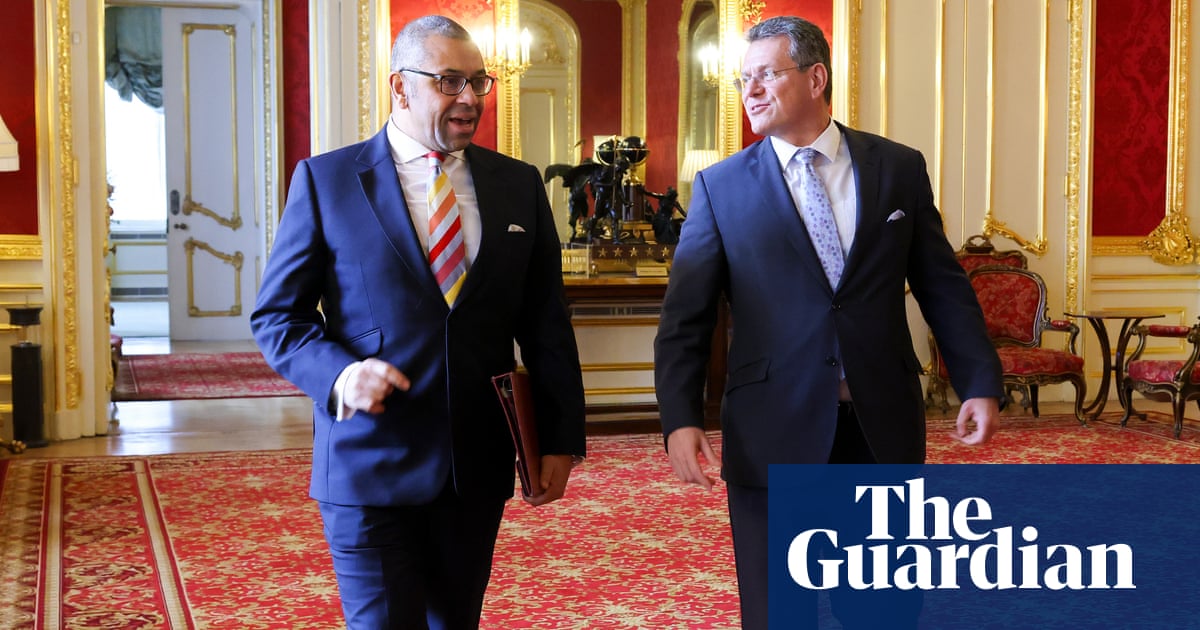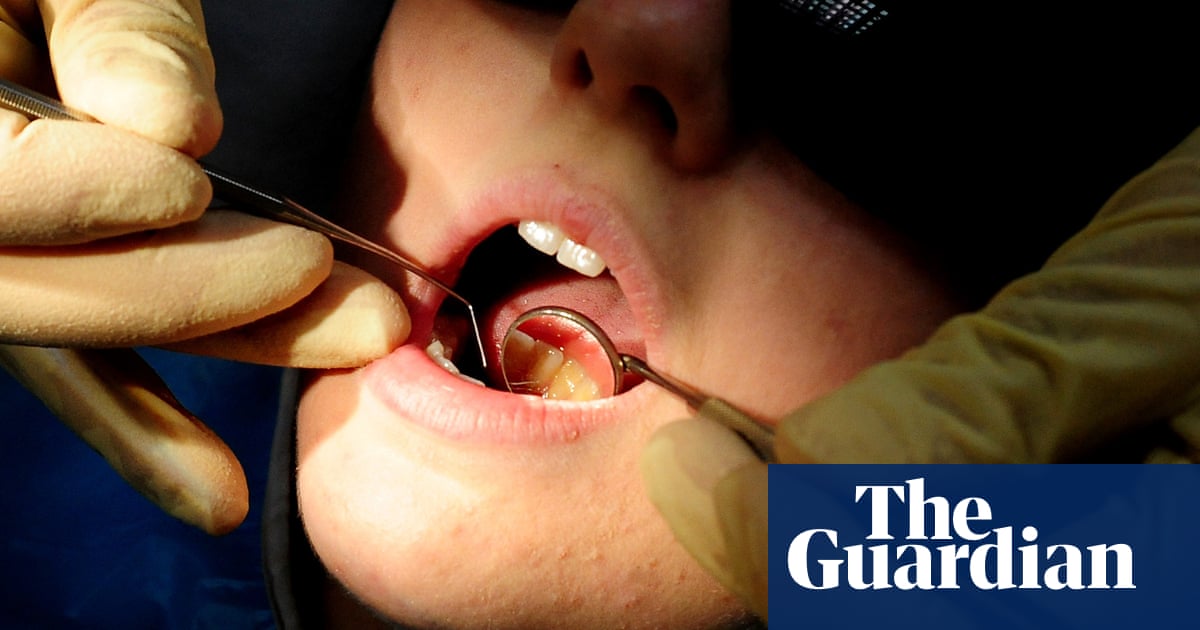
The UK has asked the EU to suspend an imminent ban on the sale of British sausages in Northern Ireland to give both sides “breathing space” to negotiate an agreement on the Brexit protocol and avert a trade war.
Lord Frost, the Brexit minister, was speaking days after Boris Johnson warned he would do “whatever it takes” to protect Northern Ireland’s position as part of the UK.
From the end of this month, a grace period on an EU prohibition on the sale of chilled meats from Great Britain in Northern Ireland shops is due to expire as part of the Northern Ireland protocol, designed to prevent the restoration of a hard border on the island of Ireland.
Frost confirmed the UK had proposed an arrangement with the EU in which most of the controversial border checks on meat and dairy products would be abolished but admitted the proposal has had “very little traction” from Brussels.
He told MPs on the Northern Ireland affairs committee it would be a “pity” if the EU did not respond to the request for an extension as the negotiations were “already complex and tense”.
Frost said “good progress” was nonetheless being made in talks aimed at resolving the escalating dispute over the Northern Ireland protocol. “If we could get to a better atmosphere … it would be very good,” he said.
“We have asked, and suggested the right way forward, would be to agree to extend the grace period, at least for a bit, to provide a bit of a breathing space.”
A spokesperson for the European Commission said: “I’m not aware of any such recent requests that you mention. I would just mention two things by way of a general comment on this.
“First of all, you know that we agreed a grace period on a number of different things in December but the UK government was not in a position to be fully ready for the end of the transition period. This included, for example, chilled meats, which was a grace period for six months … it also included, importantly, conditions which the UK government needed to adhere to during that period. I think you would have seen and heard from us that a lot of these conditions aren’t being respected at this point in time.
“I think, overall, our main aim now is to provide predictability and stability to the people in Northern Ireland, that is our overarching aim. We are willing to find solutions, we are willing to work with the UK in the framework of the joint bodies, in the joint committee, and various other meetings … but for that we really need to see credible implementation by the UK of their commitments on their side.”
Frost said a “negotiated” position was the best outcome, centring on checks on food and agricultural products being traded across the Irish Sea.
He confirmed the UK had accepted some controls on goods but that it was a “super-delicate” issue and needed to be handled sensitively, arguing there was still time to “loosen” the tensions and agree a deal on the protocol.
The dispute came to a head over what has been billed as a looming “sausage trade war” centring on a 30 June end to the six-month grace period for the sale of chilled meats from Great Britain in Northern Ireland.
The EU has warned it would retaliate swiftly if the UK suspended that deadline unilaterally, prompting veiled threats of a possible trade war.
Frost told MPs the protocol had caused a “chilling effect” on trade across the Irish Sea, with British companies saying they “can’t be bothered” to sell in Northern Ireland.
But he said this “unease” could be eliminated. Frost insisted the UK had proposed a workable solution to the problem of checks, involving a New Zealand-style agreement on food and agricultural products that would involve the EU recognising the “equivalent” standards.
This would not get around the ban on chilled meats but a trusted trader scheme could address that, Frost suggested.
He said the EU had not yet offered feedback on the proposals, arguing that its previously stated opposition to such an approach was a political decision and not an “existential” approach to the world.
There was little or no risk of chilled meats destined for Northern Ireland supermarkets and corner shops entering the Irish high street and yet the EU insisted on checks in the Irish Sea, he said.
Frost denied he was an ideological purist or that his view of sovereignty “was a carved, monolithic thing akin to Stonehenge”.
The “core of the difficulty” is that the UK had high standards of food, equivalent to those in the EU, but the EU insisted on checks even though they were not necessary, he said.
Under an equivalence food standards agreement, the EU would respond by increasing checks if the UK diverged on food standards.
“If we can inject some momentum into this negotiation and show that solutions are possible. I’d like to think that would help, but they have got to be fundamental solutions that change the balance of where things are. If the EU would make clear statement to that effect it would help,” he said.












